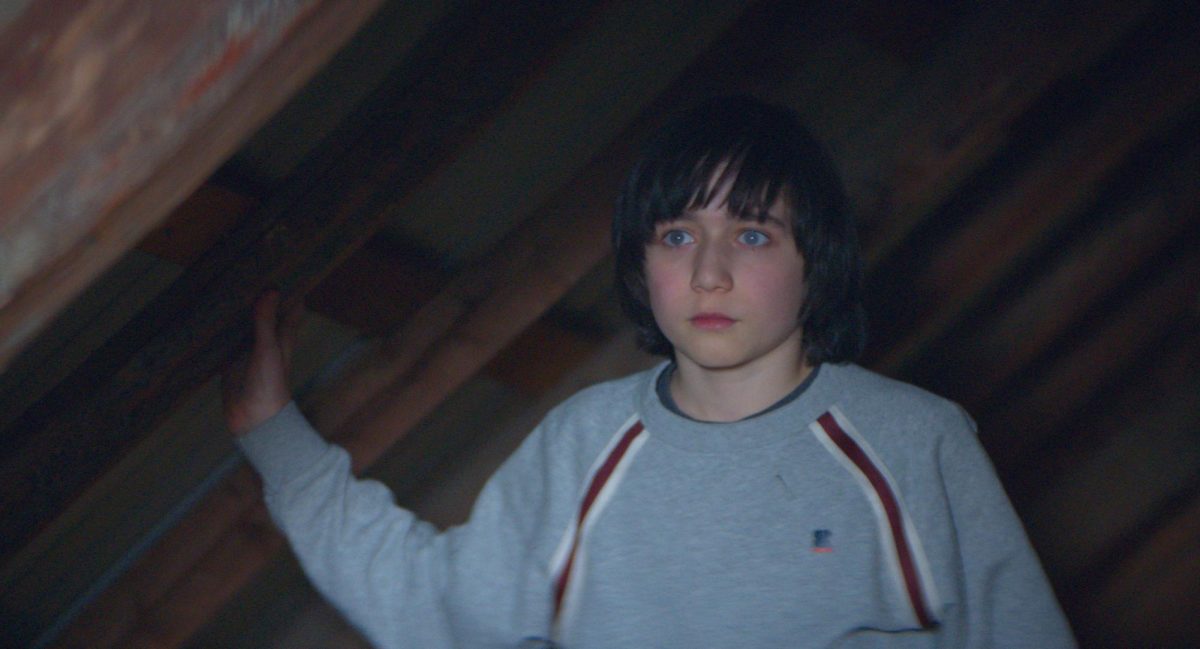
Les Films de Pierre
Anatomy of a Fall © Les Films Pelléas
Director Justine Triet’s new film asks the viewer one simple question: did she do it?
In the Cannes’ Palme d’Or winner “Anatomy of a Fall,” it all begins with an instrumental cover of 50 Cent’s “P.I.M.P.,” blaring throughout Sandra’s (Sandra Hüller) house as she is interviewed by graduate student Zoé (Camille Rutherford) about her writing career. Just moments later after Zoé drives off, Sandra’s husband, Samuel (Samuel Theis), is found dead on the ground by her visually impaired son Daniel (Milo Machado-Graner), a trail of blood scattered on the snow around him.
It’s clear that he fell from the house attic, but the question the police force finds themselves grappling with — and attempting to recreate through their own means — is whether he died by suicide or if Sandra murdered him. With the help of lawyer Vincent (Swann Arlaud) on her side, Sandra tries to prove her innocence despite being the only person in the house during the time of the death, seeming like the only obvious suspect. Whether or not she is actually innocent remains left for the audience to decide for themselves.
One of the most compelling aspects of this French drama is that it’s not just Sandra’s actions on the day of her husband’s murder that is on trial: It’s their marriage. It’s her achievements, her writing, everything she has said or done throughout the course of her life with Samuel.
The nature of the evidence used in court draws the line between fiction and reality, with the prosecutor (Antoine Reinartz) relying on what Sandra has written in her successful books about murder to try to dig up answers. In one moment, he equates a moment in her book about the main character covering up their husband’s death to Sandra’s actions in real life. The lawyers dig into pure speculation to paint specific narratives for the jury to buy into, at times mirroring the media frenzy that surrounds the case.
The film effectively critiques the way the media indulges into people’s private lives. At times, the camera’s perspective switches to iPhone or home video footage being taken of Sandra and Samuel while being questioned, feeling akin to true-crime documentaries. But the real story is grounded in character work: the real meat of the drama is found within the courtroom, which Triet and Arthur Harari’s sharp screenplay understands thoroughly.
The script keeps the film moving at a consistent pace throughout the course of two and a half hours, with even the longest conversations being absolutely riveting to watch. Not a second of this runtime is wasted, with each new revelation compounding into a complex web of uncertainty and disillusionment. It all ties back to the film’s central question with the plot itself remaining refreshingly simple. In addition to the script’s dramatic tension, the writing also manages to sneak in some unexpected moments of dark humor that make Triet’s vision even more original and critical.
Triet’s directing style helps to elevate what would have otherwise been a stale courtroom set piece. Panning back and forth between the two sides of the courtroom in one continuous take and strategically zooming in during key revelations keeps the scene fluid and always exciting to watch unfold.
Beyond the excellent writing, the true anchor of the entire picture is Hüller’s show-stopping lead performance. She commands the audience’s attention at all times, making it nearly impossible to get a full read on who Sandra is as a person. She opens up her wounds for all to see, but there’s a feeling ingrained in Hüller’s work that the audience can never fully trust her. Every monologue she gives could be used as an Oscar clip. Another standout in the film that deserves more attention is Machado-Graner. He portrays Daniel’s grief perfectly, especially in the third act of the film when he contemplates his mother’s own character and tries to discern her for who she really is.
Triet asks the audience, then, to think about the nature of truth and how it’s defined by the societal structures that govern us. Can we ever truly, undoubtedly know that people are telling the full, honest truth in life? And what preconceived notions and systems do we hold onto that separate people from seeing the full picture?
By the end of the film, unanswered questions hang over the audience’s head that are sure to linger far after the experience is over. While it’ll be natural for post-viewing discussions to focus on Sandra being innocent or guilty, the more interesting conversations will be about the French trial institution. When people are left with nothing but their own subjective experiences, the truth is unlikely to ever see the light of day.